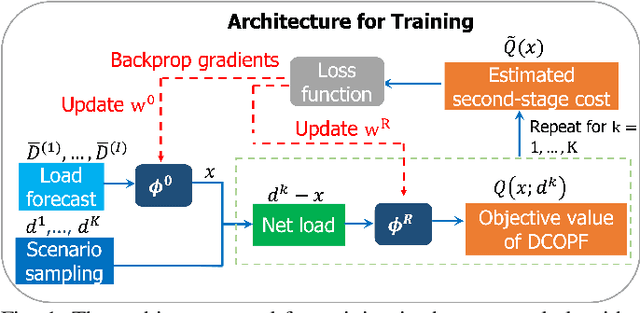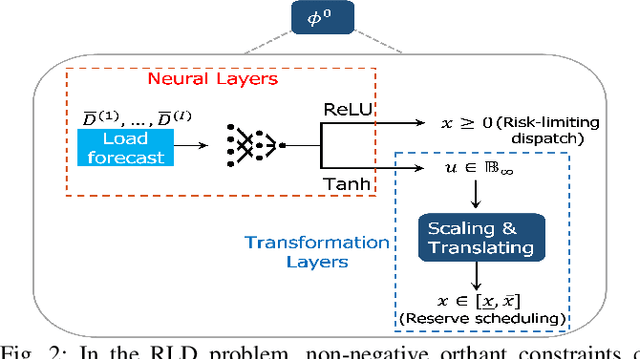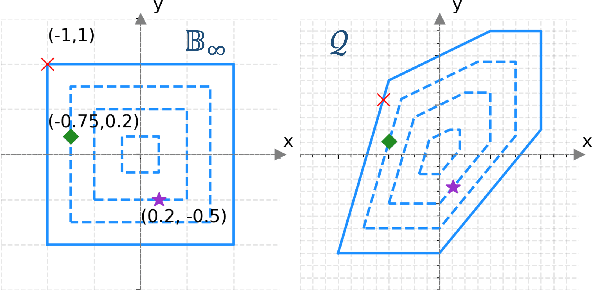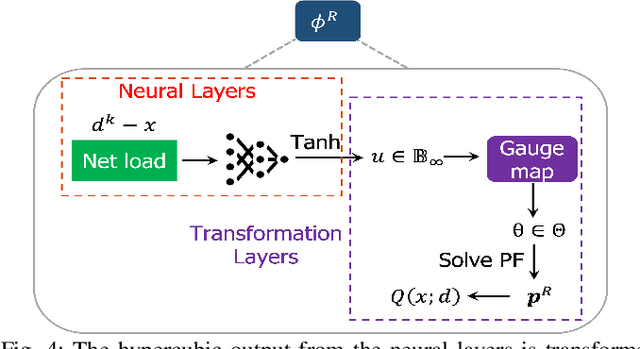An Efficient Learning-Based Solver for Two-Stage DC Optimal Power Flow with Feasibility Guarantees
Paper and Code
Apr 03, 2023



In this paper, we consider the scenario-based two-stage stochastic DC optimal power flow (OPF) problem for optimal and reliable dispatch when the load is facing uncertainty. Although this problem is a linear program, it remains computationally challenging to solve due to the large number of scenarios needed to accurately represent the uncertainties. To mitigate the computational issues, many techniques have been proposed to approximate the second-stage decisions so they can dealt more efficiently. The challenge of finding good policies to approximate the second-stage decisions is that these solutions need to be feasible, which has been difficult to achieve with existing policies. To address these challenges, this paper proposes a learning method to solve the two-stage problem in a more efficient and optimal way. A technique called the gauge map is incorporated into the learning architecture design to guarantee the learned solutions' feasibility to the network constraints. Namely, we can design policies that are feed forward functions that only output feasible solutions. Simulation results on standard IEEE systems show that, compared to iterative solvers and the widely used affine policy, our proposed method not only learns solutions of good quality but also accelerates the computation by orders of magnitude.
 Add to Chrome
Add to Chrome Add to Firefox
Add to Firefox Add to Edge
Add to Edge